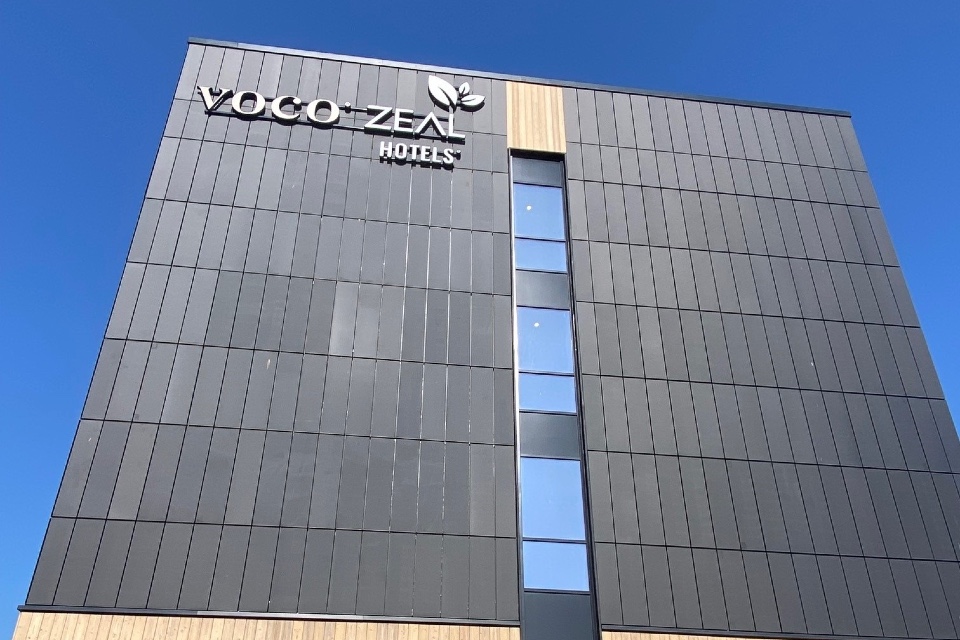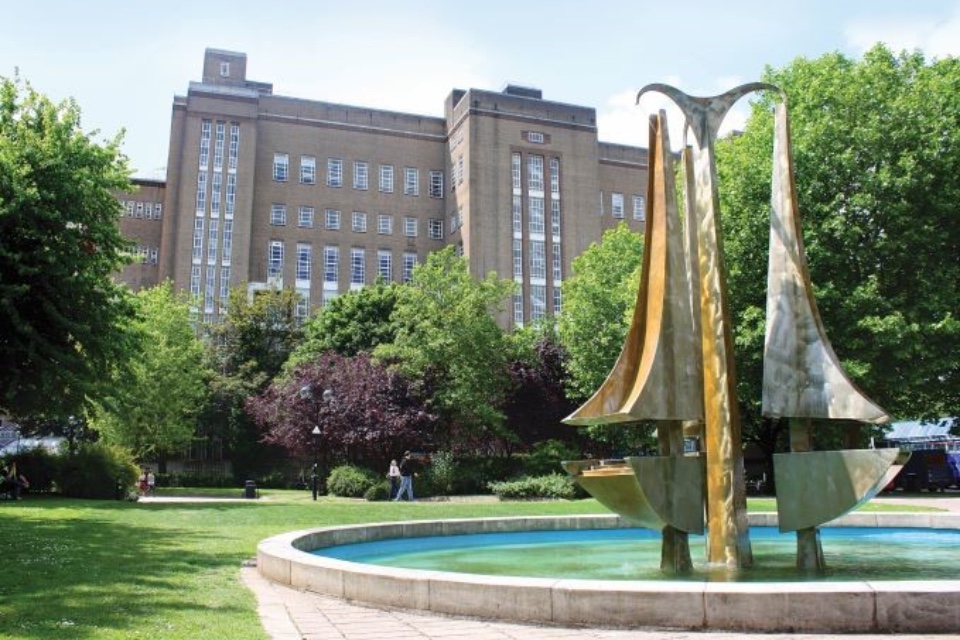Zeal Hotels has opened the first in a planned series of net-zero hotels, designed to operate entirely on renewable energy. The 142-bedroom voco Zeal Exeter Science Park is believed to be the first UK hotel to feature solar panels as cladding, with vertical solar arrays installed on three of its four exterior walls.
This solution is complemented by a smaller rooftop solar system, making the building almost completely encased in solar technology.
Developed by Zeal Hotels in partnership with IHG Hotels & Resorts and Valor Hospitality, the hotel has achieved a BREEAM Outstanding rating for its sustainable design. This includes using Passivhaus principles to reduce energy consumption by approximately two-thirds compared to conventional hotels.
Key design features include specialised wall thickness and concrete composition to help maintain comfortable indoor temperatures and reduce reliance on traditional heating and cooling systems.
At the heart of its innovative design is the wrap-around vertical solar panel façade. Seamlessly integrated into the building’s design, the black glass panels maximise energy production while serving as a visually striking element that complements the hotel’s contemporary aesthetic. Behind the design lies a robust commercial strategy.
The system is projected to generate 320,000 kWh of clean, renewable energy annually – more than the building’s entire annual use – and is expected to eliminate the production of 202 tonnes of CO2 per year. Financially, it is projected to deliver an estimated £200,000 in annual savings, with an anticipated ROI within just 18 months.
Nick Spicer, managing director of solar specialist Your Eco, which installed and commissioned the vertical solar system, explains: “While the original plans for the hotel included a rooftop solar system, it quickly became evident that rooftop solar alone wouldn’t produce enough energy to meet the hotel’s energy demands – a common challenge in buildings with small rooftops compared to their overall size and energy consumption. Rather than compromise on its sustainability goals, Zeal embraced a bold alternative: a vertical solar installation. They had a clear and ambitious vision, and we’re proud to have helped bring that vision to life.”
Your Eco selected SolarEdge DC-optimised inverters and S-Series Power Optimisers for the project to overcome inherent design challenges with vertical solar arrays. These include an increased risk of shading from nearby buildings and trees, and varying sunlight angles which can reduce energy production in traditional string inverter systems. In traditional systems, panels are connected in series, which means that if one panel underperforms, the performance of all connected panels is impaired. SolarEdge Power Optimisers address this by allowing solar panels to operate independently, ensuring that any performance loss is limited to the affected panels.
“As demand for clean, renewable power continues to rise, vertical solar installations are expected to become increasingly common. However, achieving their full potential requires innovative technology – especially when panels are used as cladding, which brings added requirements like strict fire safety standards,” says Spicer. “SolarEdge’s technology ensures the solar façade is both efficient and safe, offering significant cost savings and peace of mind.”
Zeal Hotels plans to install on-site battery storage at the Exeter site to store excess solar energy generated during the day for use at night. Currently, surplus energy is exported to the grid and imported back in the evening. It is also exploring additional sites to develop more net-zero carbon hotels, using voco Zeal Exeter Science Park as a blueprint.
Tim Wheeldon, Founding Director, Zeal Hotels, said: “The decision to build our net-zero hotel reflects our commitment to combating climate change and reducing our carbon footprint. By harnessing renewable energy sources, implementing energy-efficient designs, and using innovative technology, we have created a space that not only provides comfort and luxury but also prioritises environmental responsibility.”







